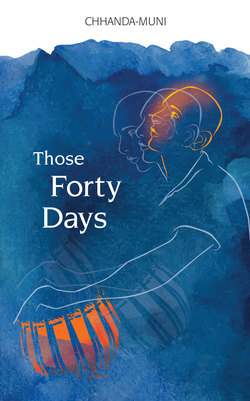Читать книгу Those Forty Days - Samir Chatterjee - Страница 3
На сайте Литреса книга снята с продажи.
PREFACE
ОглавлениеIn the Indian system of practicing music, there is a regimen called Chilla. It is a vow one takes to practice as long as he or she is awake, except for short breaks to use the restroom, take a small bite or nap. It lasts for forty days. During this period one needs to be isolated in a chamber preferably with no daylight, to suspend the sense of time. As it can be imagined, it is an extremely challenging discipline, both physically and mentally. Therefore, it is recommended to be done, if at all, within the age of thirty. I took that vow as I stepped into the 62nd year of my life, from July 11th through August 19th of 2016, in an isolated private facility in Charlotte, Vermont. This journal is a documentation of my day-to-day experiences during that period.
The instrument I play is called tabla. It is a two-piece Indian drum producing a variety of tones. The high drum is called Dahina and the low as Bayan. The Dahina is tuned to a particular pitch, while the Bayan can be modulated to different pitch variations. There are syllables associated with each individual and combined drum notes, forming into words and sentences, which eventually shape up into a highly developed drum-language and repertoire. One needs to sit cross-legged on the floor to play them with fingers and palms of both hands. Some of the compositions played on these drums are set, and some are meant to be improvised on. It demands a very high level of skill as well musical sensibility.
I have been playing these drums since I was two and half years old. So, the main purpose of my doing this Chilla was not to improve my skill, but to gain a deeper insight into the music, which might also further mature my philosophical perspective to music and life. So, what I have documented here is merely fragment of a journey that has been on for almost six decades. That makes me old, but only physically. Mentally I feel as fresh, eager and absorbent as ever. Even physically I feel much younger than perhaps I should. Some of my near ones try to remind me about that. To withstand such coercive persuasion, I say to myself “age is a matter of the mind; if you do not mind, it doesn’t matter”. I don’t mind getting old at all. In fact, it is a lot of fun.
While writing this journal I tried to scribble down the experiences as promptly and closely as possible, without interrupting the process. In those moments, I felt as if I was being dictated and was under compulsion to take notes. So, if I am to be credited for anything at all, it would be for my role of a stenographer.
There is something very important I should mention here. I come from a tradition, in which people are recommended and advised not to share their special experiences; particularly those which are of spiritual importance. So, it was a bit odd to me when I first came across Paramhansa Yoganada’s book “Autobiography of a Yogi”. It was difficult for me to accept the idea behind a Yogi writing his autobiography. Yogis don’t do that, they usually don’t have time or interest in such documentation. They would rather spend those times in meditation towards their own enlightenment. Besides, what purpose would it serve? Seekers will find their way on their own. And for the rest, even reading an autobiography of a Yogi wouldn’t cause much of a difference. But, when I started looking around and saw the impact it had on the western world, how it influenced and illuminated millions of people all over the world, I became once again convinced about the great value of sharing. It also prompted me to go back in time and realize that all scriptures of the world also fall under the same category of documentation. The fate and state of mankind would have been so different without having them. These realizations removed all hesitations from my mind and I decided to keep this journal for anyone who might take interest.
I have a habit of sometimes bringing in analogies and anecdotes to elaborate a point. Quite a few of such instances may be found in this journal. Please excuse me if they appear as digressions, and give them a chance.
This is the first time I am using the pseudonym Chhanda-Muni, a name given to me by a fellow musician Ms. Rajyasree Ghosh. It means a sage in pursuit of rhythm. A few years back she was staying with us in our house in Nutley, New Jersey. One morning she called me with that name out of spontaneity. I honored and cherished it, but didn’t consider myself worthy of it. People see several things in us, we don’t. Today I feel a little less awkward with that name. So, I grab this opportunity to honor her feelings, before I hesitate again.
It would be futile to assess this Chilla as a success or failure. I don’t know yet, and perhaps I shall never know. This is one of those few areas of life which continues to grow its effect on us. Human standards of measurement in terms of success and failure don’t quite apply. So, it is better not to worry about those.
Samir Chatterjee
(Chhanda-Muni)
